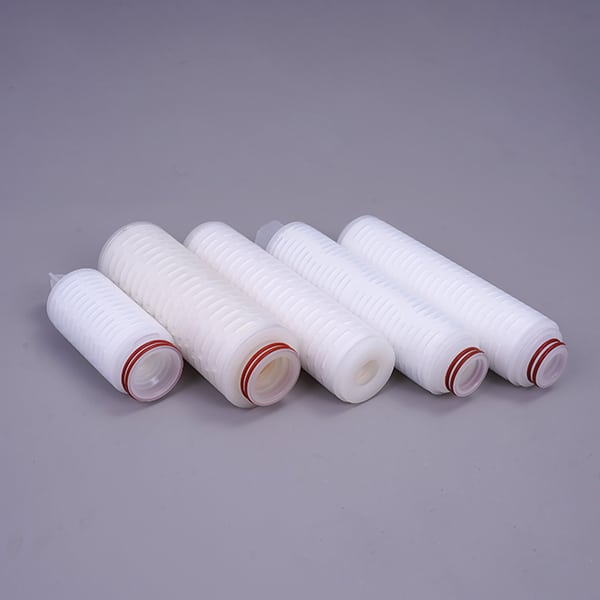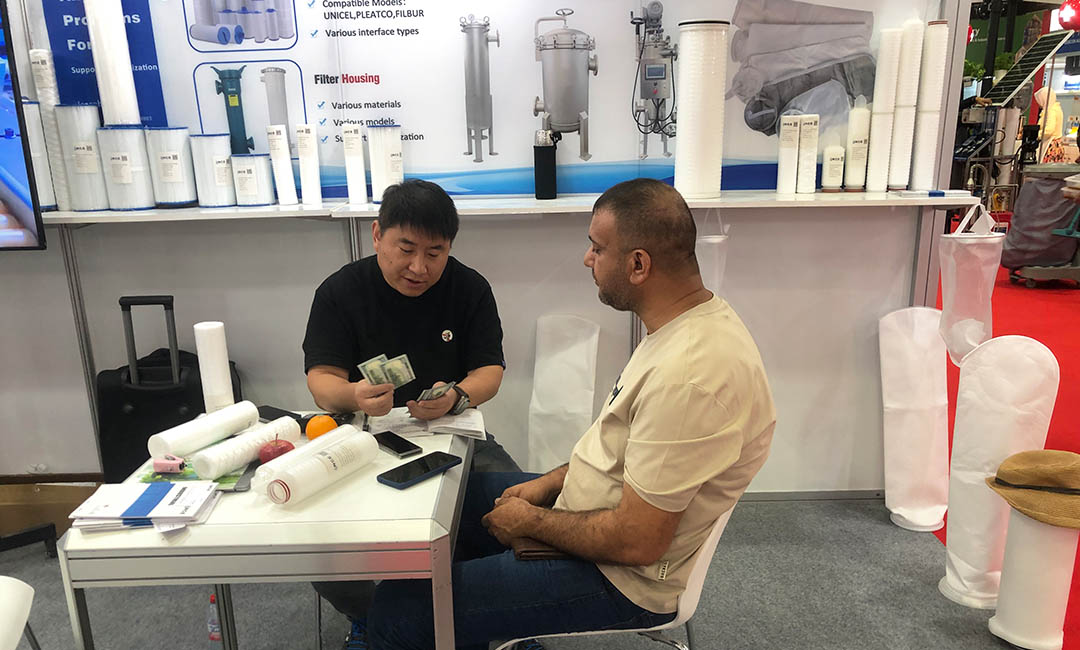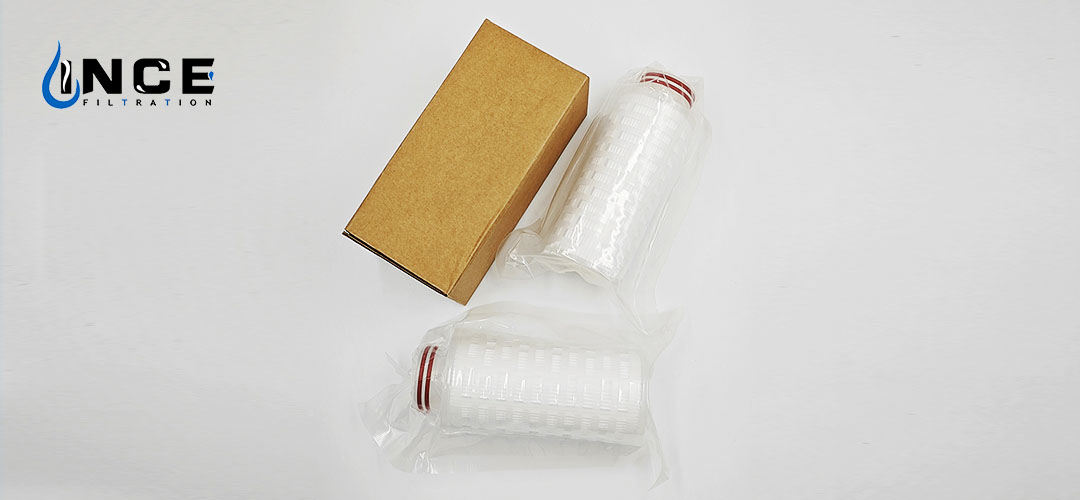
Reusable Pleated Filters: A Step Towards Sustainable Living
Benefits of Reusable Pleated Filters for Eco-Friendly Homes
In the quest for sustainable living, individuals and families are increasingly seeking ways to reduce their environmental impact. One effective strategy that has gained traction is the adoption of reusable pleated filters in home ventilation systems. These filters not only enhance indoor air quality but also contribute significantly to eco-friendly practices. By understanding the benefits of reusable pleated filters, homeowners can make informed decisions that align with their sustainability goals.
To begin with, reusable pleated filters are designed to be cleaned and reused multiple times, which drastically reduces the amount of waste generated compared to traditional disposable filters. Disposable filters, often made from non-biodegradable materials, contribute to landfill overflow and environmental degradation. In contrast, reusable filters can be washed and maintained, allowing them to serve their purpose for years. This longevity not only minimizes waste but also lessens the frequency of purchases, leading to reduced consumption of resources associated with manufacturing and packaging.
Moreover, the efficiency of reusable pleated filters is noteworthy. These filters are engineered to capture a wide range of airborne particles, including dust, pollen, pet dander, and even some bacteria and viruses. By effectively trapping these pollutants, they help maintain a healthier indoor environment, which is particularly beneficial for individuals with allergies or respiratory conditions. Consequently, the use of reusable pleated filters can lead to improved overall well-being for residents, fostering a healthier lifestyle that aligns with eco-conscious living.
In addition to their waste-reducing and health-promoting qualities, reusable pleated filters can also contribute to energy efficiency in homes. When air filters become clogged with dust and debris, they can impede airflow, forcing heating and cooling systems to work harder to maintain desired temperatures. This increased strain not only leads to higher energy consumption but also shortens the lifespan of HVAC systems. By utilizing reusable pleated filters, homeowners can ensure optimal airflow and system efficiency, ultimately resulting in lower energy bills and a reduced carbon footprint.
Furthermore, the financial implications of switching to reusable pleated filters are significant. While the initial investment may be higher than that of disposable filters, the long-term savings are undeniable. Homeowners can save money over time by avoiding the recurring costs associated with purchasing disposable filters. Additionally, the durability of reusable filters means that they do not need to be replaced as frequently, further enhancing their cost-effectiveness. This financial benefit, combined with the environmental advantages, makes reusable pleated filters an appealing choice for those committed to sustainable living.
Transitioning to reusable pleated filters also encourages a broader mindset shift towards sustainability. By making conscious choices about everyday products, individuals can inspire others in their communities to consider eco-friendly alternatives. This ripple effect can lead to a collective movement towards more sustainable practices, ultimately contributing to a healthier planet.

In conclusion, the benefits of reusable pleated filters extend far beyond mere convenience. They represent a significant step towards sustainable living by reducing waste, improving indoor air quality, enhancing energy efficiency, and providing long-term financial savings. As more homeowners recognize the importance of eco-friendly choices, the adoption of reusable pleated filters can play a pivotal role in fostering a more sustainable future for generations to come. Embracing such innovations not only reflects a commitment to personal health and well-being but also underscores a collective responsibility to protect the environment.
How to Properly Clean and Maintain Reusable Pleated Filters
Reusable pleated filters are an essential component in promoting sustainable living, as they significantly reduce waste compared to their disposable counterparts. However, to maximize their lifespan and efficiency, proper cleaning and maintenance are crucial. Understanding the correct methods for cleaning these filters not only enhances their performance but also contributes to a healthier indoor environment.
To begin with, it is important to establish a regular cleaning schedule. Depending on the environment in which the filter is used, cleaning may be required every month or every few months. For instance, homes with pets or in areas with high levels of dust and pollen may necessitate more frequent cleaning. By adhering to a consistent schedule, one can prevent the accumulation of dirt and debris, which can obstruct airflow and reduce the filter’s effectiveness.
When it comes to the actual cleaning process, the first step is to remove the filter from its housing. This should be done carefully to avoid damaging the filter or the surrounding components. Once removed, it is advisable to gently tap the filter against a hard surface to dislodge any loose particles. This initial step can significantly reduce the amount of dirt that needs to be washed away.

Following this, the filter should be rinsed under lukewarm water. It is essential to avoid using hot water, as it can damage the filter material. While rinsing, one should ensure that the water flows in the opposite direction of the airflow to effectively remove trapped particles. This method helps to dislodge dirt without forcing it deeper into the pleats. For filters that are particularly dirty, a mild detergent can be used, but it is crucial to thoroughly rinse the filter afterward to eliminate any soap residue.

After rinsing, the next step involves drying the filter. It is vital to allow the filter to air dry completely before reinstalling it. Placing the filter in direct sunlight can expedite the drying process, but care should be taken to avoid prolonged exposure, which may lead to degradation of the filter material. A well-dried filter not only performs better but also helps prevent mold and mildew growth, which can compromise air quality.
In addition to regular cleaning, periodic inspections of the filter are necessary to assess its condition. Over time, even reusable filters can wear out or become damaged. Signs of wear may include visible tears, fraying edges, or a significant loss of pleating structure. If any of these issues are observed, it may be time to replace the filter to ensure optimal performance.
Moreover, it is beneficial to familiarize oneself with the manufacturer’s guidelines regarding cleaning and maintenance. Different filters may have specific requirements or recommendations that can enhance their longevity and efficiency. Adhering to these guidelines not only ensures proper care but also helps maintain any warranties that may be in place.
In conclusion, maintaining reusable pleated filters is a straightforward yet essential aspect of sustainable living. By establishing a regular cleaning routine, employing proper cleaning techniques, and conducting periodic inspections, individuals can ensure that their filters remain effective and durable. This commitment to maintenance not only contributes to a healthier indoor environment but also aligns with the broader goal of reducing waste and promoting sustainability. Through these practices, one can take meaningful steps toward a more eco-friendly lifestyle.
Comparing Reusable Pleated Filters to Traditional Disposable Options
In recent years, the conversation surrounding sustainability has gained significant momentum, prompting individuals and businesses alike to seek eco-friendly alternatives in various aspects of daily life. One area that has seen notable innovation is air filtration, particularly with the introduction of reusable pleated filters. When comparing these reusable options to traditional disposable filters, several key factors emerge, highlighting the advantages of adopting a more sustainable approach.
To begin with, the environmental impact of disposable filters cannot be overlooked. Traditional filters are typically made from non-biodegradable materials, which contribute to landfill waste. Each time a disposable filter is replaced, it adds to the growing problem of plastic pollution. In contrast, reusable pleated filters are designed for longevity, often lasting several years with proper maintenance. This durability significantly reduces the frequency of replacements, thereby minimizing waste and promoting a more sustainable lifestyle. By choosing reusable filters, consumers can actively participate in reducing their carbon footprint and conserving natural resources.
Moreover, the economic benefits of reusable pleated filters are compelling. While the initial investment may be higher than that of disposable options, the long-term savings are substantial. Disposable filters require regular replacement, which can accumulate to a significant expense over time. In contrast, reusable filters can be washed and reused, leading to considerable cost savings. This financial advantage not only makes reusable filters an attractive option for budget-conscious consumers but also encourages a shift towards more sustainable practices.
In addition to their environmental and economic benefits, reusable pleated filters often provide superior performance compared to their disposable counterparts. Many reusable filters are designed with advanced filtration technology that can capture a higher percentage of airborne particles, including dust, pollen, and pet dander. This enhanced filtration capability can lead to improved indoor air quality, which is particularly beneficial for individuals with allergies or respiratory issues. Furthermore, the ability to clean and maintain these filters ensures that they continue to perform effectively over time, whereas disposable filters may lose their efficiency as they become clogged.
Transitioning to reusable pleated filters also fosters a greater awareness of one’s consumption habits. By opting for a product that requires regular maintenance, consumers are encouraged to engage more actively with their air quality management. This mindfulness can extend beyond air filtration, inspiring individuals to consider other areas of their lives where sustainable choices can be made. As people become more conscious of their environmental impact, they may seek additional eco-friendly alternatives, creating a ripple effect that promotes broader sustainable living practices.
However, it is essential to acknowledge that the transition to reusable pleated filters may require an adjustment period. Users must develop a routine for cleaning and maintaining their filters to ensure optimal performance. This commitment to upkeep may seem daunting at first, but the long-term benefits far outweigh the initial effort. As consumers become accustomed to this new practice, they will likely find it becomes an integral part of their home maintenance routine.
In conclusion, the comparison between reusable pleated filters and traditional disposable options reveals a clear advantage for the former in terms of environmental sustainability, economic savings, and air quality performance. By making the switch to reusable filters, individuals not only contribute to a healthier planet but also enhance their own living environments. As the movement towards sustainable living continues to grow, embracing such innovations will play a crucial role in shaping a more responsible and eco-conscious future.

